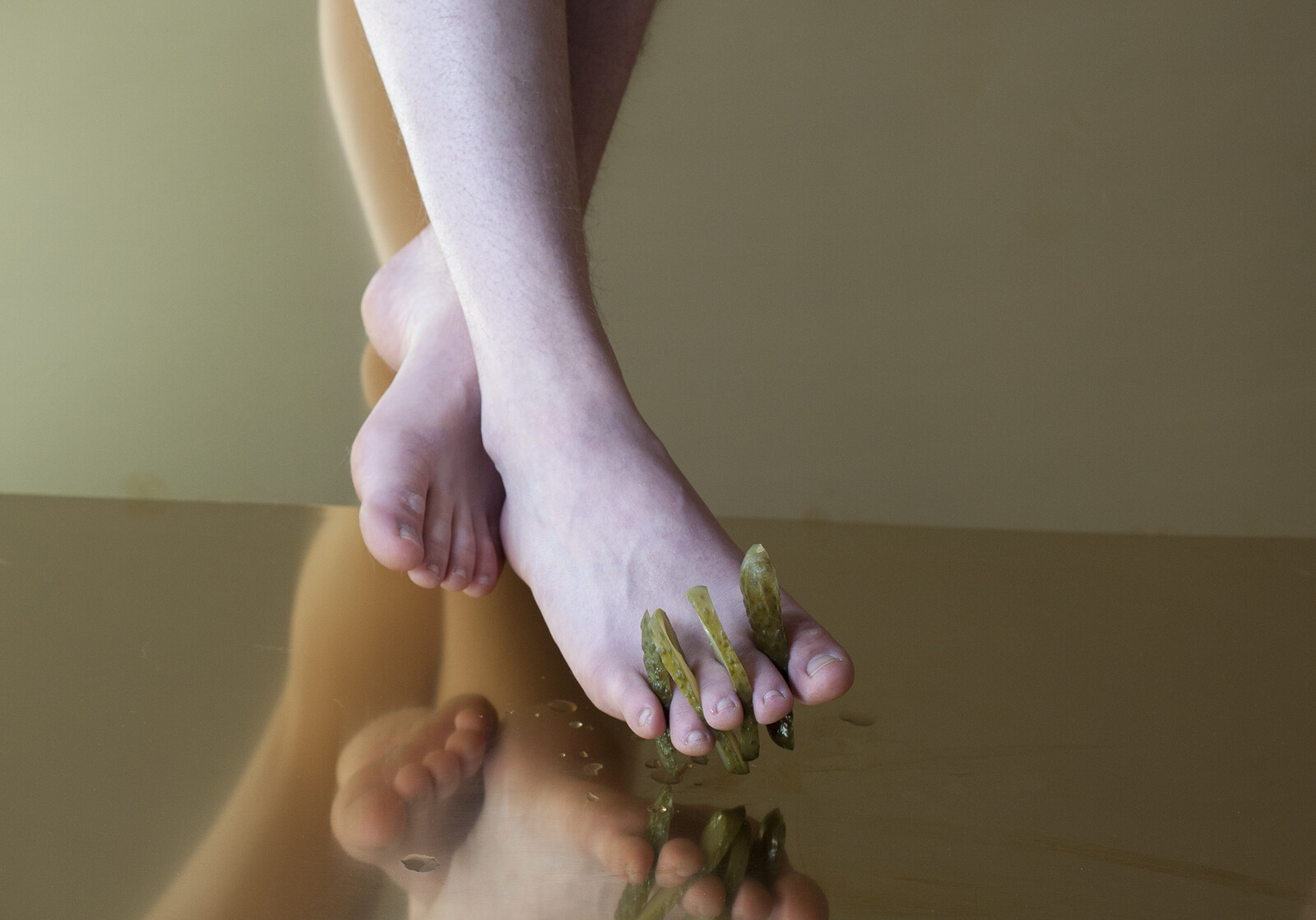September 17–November 15, 2020
Kongens gate 2
7011 Trondheim
Norway
Hours: Thursday–Friday 2–6pm,
Saturday–Sunday 12–4pm
T +47 485 00 100
office@kunsthalltrondheim.no
Participating artists:
Oreet Ashery, Solveig Bergene, Gideonsson/Londré, Jessica Harvey, Moa Israelsson, Britta Marakatt-Labba, Mercedes Mühleisen, Adrian Piper, Tabita Rezaire, The Deep Field Project (Diann Bauer, Jol Thoms, Neal White), and Anton Vidokle
In 1950, a mummified body now known as Tollund Man was found in a bog on the Jutland peninsula in Denmark. The features of the man who had lived in the 4th century BCE were so well preserved that he was first believed to be a contemporary. Tollund Man joined the ranks of Ötzi, who had lived around 3300 BCE, and others whose continued presence conflates our time with theirs thanks to the preserving materiality of mud and ice.
These bodies’ presences promise a gleam of immortality, which has long haunted human imagination in philosophy, pop culture, and various cosmologies. Today’s health crisis makes this topic urgent once again. Current developments in biotechnology seem to bring us closer to this age-old dream: never-ending life. At the same time, we are witnessing a resurgence of biopolitics, in which life itself is being controlled, both through bodies and through molecules, DNA, and code.
The prospect of living forever changes our relationship to the present. Responsibility for the now is pushed to an ever further receding horizon of future redemption, where the hope of resurrection obscures the urgency of action in the present. And yet, the current moment is defined by an acceleration of events that make the future seem ever more compressed; in fact, some might say that the direction of time itself has changed.
The climate disaster spurs attempts to preserve life that is on the edge of extinction. Western biological anthropologists and population geneticists extend such ventures to peoples they anticipate will disappear. Indigenous peoples’ genetic information is stored, often without their consent, for purposes of human genome diversity, echoing the non-consensual extraction of HeLa cells from African-American cancer patient Henrietta Lacks in the 1950s. Since their disappearance is assumed and used to justify this research, they are hardly considered among the beneficiaries of genomic futures. Besides, many indigenous cosmologies don’t adhere to binary concepts of life and death, challenging the idea of technoscientific immortality.
Current cryonic approaches of freezing bodies, research into the Turritopsis dohrnii immortal jellyfish species, and the “download” of consciousness—these speculative developments raise important ethical questions. Who can attain immortality and who is excluded? How does our relation to the planet and other humans and nonhumans change if there is an immortal elite? If we live forever, might we become more caring towards our surroundings in our current time of ecological and social emergency, or more neglectful? This international group exhibition at Kunsthall Trondheim discusses both playfully and earnestly some of the most pressing ontological, epistemological, ethical, and political implications of the dawning (im)possibility of immortality.
Curated by Stefanie Hessler, director Kunsthall Trondheim, with Katrine Elise Pedersen, assistant curator.
Thanks to Adrian Piper Research Archive Foundation Berlin, Marion Aïdara, Kunstmuseet i Nord-Trøndelag, Center for Research and Education in Art and Media at the University of Westminster, IASPIS – The Swedish Arts Grants Committee’s International Programme for Visual Artists, Sven Rosborn, Lademoen Kunstnerverksteder, Hallie Ayres, Brittany Nelson, and National Museum of Denmark. Special thanks to Oppdal Sten for the kind support.
During the exhibition period Oreet Ashery’s Turner Busary awarded work Revisiting Genesis (2016) will be screened on Kunsthall Trondheim’s website. Revisiting Genesis is an online series in 12 episodes, and can be viewed in its entirety in the exhibition.
Podcasts with participants including Nina Lykke, Elizabeth A. Povinelli, Kim TallBear, Jennifer Teets, Susanne M. Winterling and others will be launched during and prior to the exhibition period. The podcasts are kindly supported by Fritt Ord and Kulturrådet.


